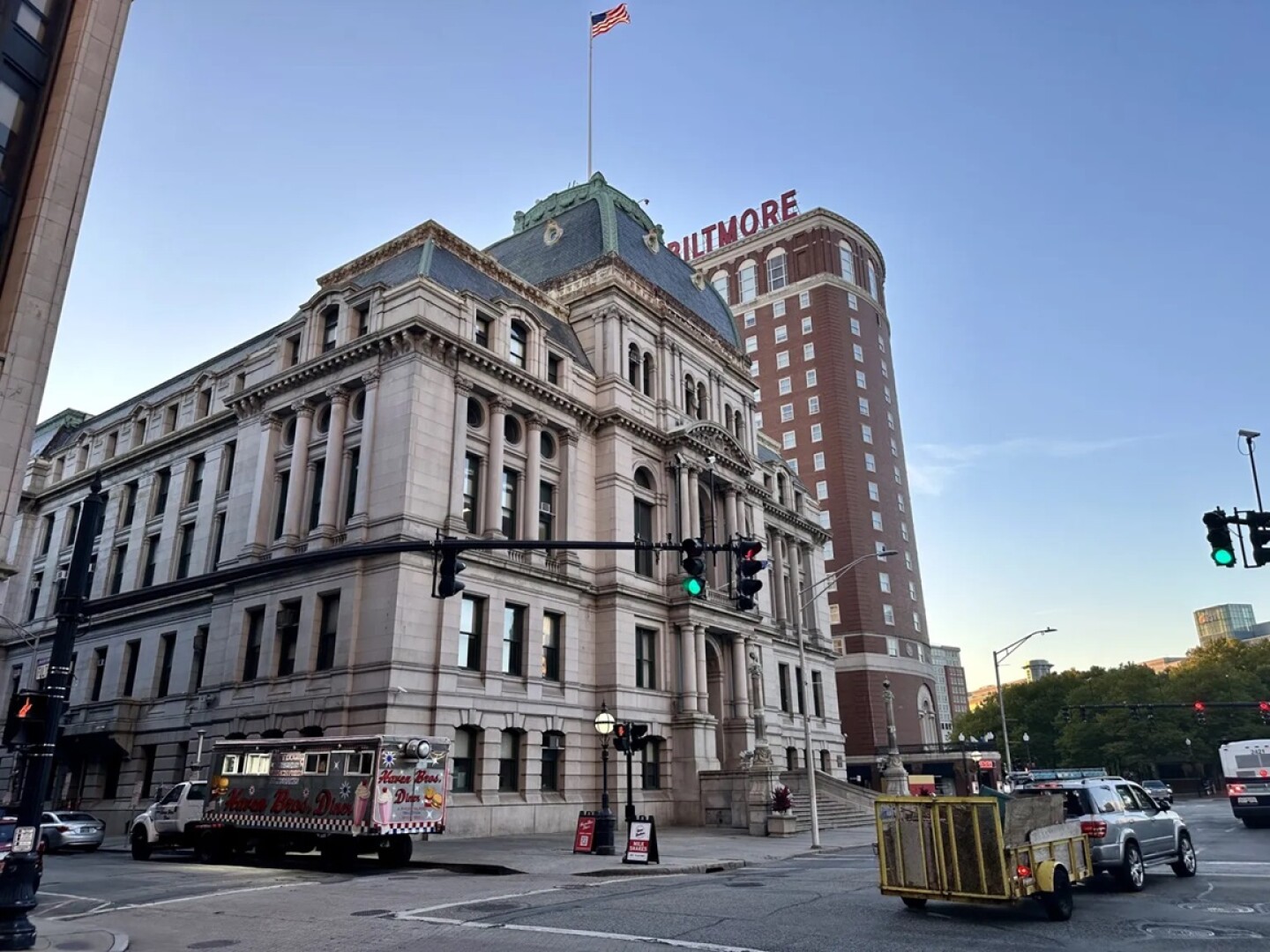Providence Mayor Brett Smiley on Tuesday released his proposed budget for fiscal year 2026, which begins on July 1.
“This year’s City budget was exceptionally difficult to balance,” he said.
According to the mayor, the city had to dig into its finances this year to find funding for its public schools, due to a lawsuit settlement from November.
Smiley hopes to find the extra funding in property taxes, increases in city fines and fees, and cost-saving measures from city departments. Ward said the city is asking the state legislature to allow it to raise its property taxes by 7.5% this year. The proposal must be approved by the legislature because state law caps municipal property tax increases at 4% annually.
The tax increases will be felt most by so-called “mom and pop landlords” — owners of 2-5 family homes, which increased on average in city-assessed value by 47% for owner-occupied properties, according to the city. Those homeowners are, on average, going to be paying $650 more annually in taxes (based on the average valuation of a home of that type, which is $585,047.28 for the next fiscal year). The tax increases will be felt least by people who own buildings with more than 6 units. Owners of 6-10 unit buildings will see their payments go down by about $1,156 annually on average, while those who own commercial properties will see their payments go down by about $400 annually.
Average tax payment change by property type:
- Owner-occupied single family: 4%
- Owner-occupied 2-5 family: 16%
- Owner-occupied condo: 4%
- Non-owner-occupied single family: 5%
- Non-owner-occupied 2-5 family: 16%
- Non-owner-occupied condo: 5%
- 6-10 unit: -5%
- 11+ unit: 1%
- Commercial: -2%
The mayor is also asking city departments to scale back on spending on things such as office supplies. In addition, the city plans to lay off two employees, but did not say which departments would lose positions.
According to the mayor, the city is also expecting to earn more revenue this year due to increasing fines for parking violations. Parking tickets are set to more than double for some offenses, like parking overnight during a snow emergency. Plus, the city wants to earn more money from selling licenses to street vendors. Smiley’s chief of staff, Emily Ward, also said the city is looking at fining dog owners for not cleaning up after their dogs, though she acknowledged that enforcement would be a challenge and therefore did not write any expected revenue from that into next year’s budget.
The City Council must agree to the budget before it can be enacted. The Council’s Finance Committee plans public hearings on the proposed budget in May and June.







